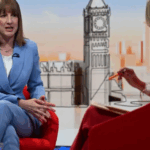More than 80% of estate agents who are members of the Society of Chartered Surveyors Ireland (SCSI) believe that current property prices are either “expensive” or “very expensive,” according to the SCSI’s 42nd annual Residential Review and Outlook report.
The report predicts that national property prices will increase by an average of 6% over the next 12 months, a slight increase from the 4.5% growth forecast in the summer of 2024.
When asked where they believe the market is in its cycle, 61% of respondents to the SCSI review indicated that prices are rising but will likely level off soon. Gerard O’Toole, Vice President of the SCSI, cautioned that the current rates of property inflation, which are around 10%, are unsustainable.
“Our survey responses suggest agents believe there will be a shift towards more balanced growth expectations with less emphasis on rapid price increases,” O’Toole said. “Given the affordability challenges facing all buyers, particularly first-time buyers, a slowdown or period of market stabilisation would be most welcome.”
The report also highlighted that 76% of estate agents reported low stock levels, a figure that has increased slightly compared to the previous year. The lack of supply was identified by the majority of agents as the key factor influencing house price movements.
O’Toole emphasized that the issue of supply will continue to dominate the market until the annual completion levels reach 40,000 new homes or more. “A year ago, 40% of agents identified the lack of supply as the main issue affecting price movements, now that number is around 60%,” he said.
Other factors influencing price movements include lower interest rates and the availability of credit, with 12% of agents citing these as significant contributors. Access to government schemes like Help to Buy was also mentioned by 8% of respondents, alongside the state of the economy, which was noted by another 8%.
The SCSI’s report also explored the affordability gap faced by first-time buyers. It included five scenarios for a couple earning a combined income of €107,000 and using the Help to Buy scheme for a 10% deposit. The analysis showed that properties in Meath, Cork, and Galway were generally affordable, but in Kildare and Wicklow, some house types—such as three-bedroom semi-detached houses—remained out of reach.
O’Toole explained that while the Dublin market was not part of the study, property prices in the capital are also unaffordable for many, creating challenges for newly qualified professionals. He stressed that the long-term solution to moderating the affordability gap lies in increasing the supply of new homes.
“The current housing supply is constrained by infrastructure deficits in water, electricity, and sewerage,” he said, calling for urgent state action to address these issues.
















